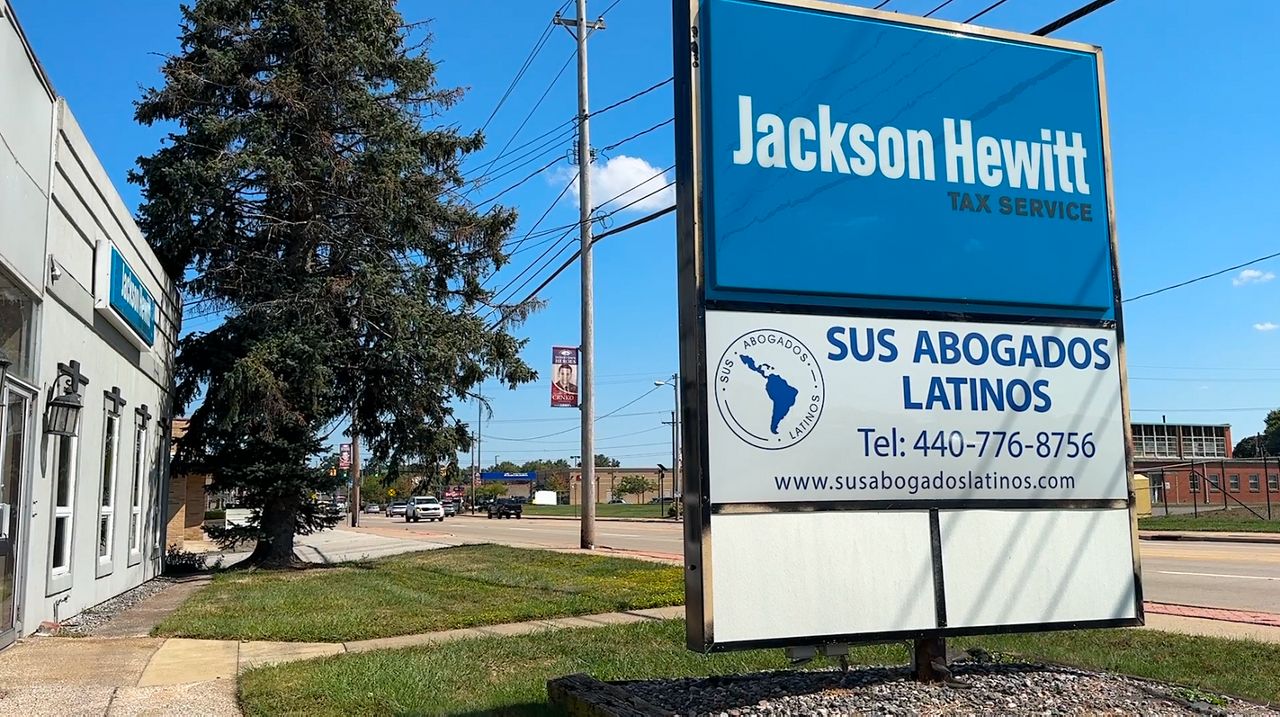CLEVELAND — Immigration lawyers across the U.S. are navigating new hurdles as the Trump administration has terminated Temporary Protected Status (TPS) for tens of thousands of migrants.
What You Need To Know
The number of detained migrants in the United States has hit a record high, reaching around 60,000, according to data released by U.S.Immigration and Customs Enforcement.
The Trump administration has announced the termination of Temporary Protected Status and humanitarian parole programs for more than a million migrants from various countries, including, Nepal, Venezuela, Afghanistan, Cameroon, Venezuela and Haiti.
Since 1990, the US has allowed migrants under TPS to legally live and work in the US for temporary periods of time if conditions in their home country are deemed unsafe.
Adrian Corona has dedicated his life to helping other immigrant families stay and live in Ohio as an associate attorney at Sus Abogados Latinos, or your Latino Immigration Lawyers, in Painesville.
“I was born and raised in Los Angeles, California to two Mexican immigrant parents, and I grew up in a very immigrant heavy community,” Corona said. “I knew from a young age that this is what I really wanted to do.”
Temporary Protected Status Termination
Corona said several of his clients are living in the United States under TPS. This protected status does not grant citizenship or lawful permanent residence, but it allows TPS holders to temporarily remain in the United States, for 6, 12 or 18 months at a time with the possibility of renewal.
Homeland Security Secretary Kristi Noem terminated the protected status program for migrant from Nicaragua and Honduras earlier this month and said conditions in those countries have now improved. Without protected status, Corona said, migrants no longer have protections from deportation.
“Those people that were here under that protected status now really have nothing holding them here legally, so they are at grave risk of any sort of detainment,” Corona said. “And, they are in violation of the country’s immigration laws at this time, unless they have something else, taken care of their immigration status.”
Community Impact
TPS programs have been terminated for seven countries over the last few months, which Corona said has fueled uncertainty and confusion among the immigrant community.
“I couldn’t even imagine, for someone who doesn’t speak English at all … it’s very difficult to keep up with these changes. It’s very difficult to get informed,” he said. “The expectation is that these people know what’s going on and that’s almost impossible. It is very difficult to access, and it’s very difficult to research.”
Painesville ranks second for the city with the largest Hispanic population in Ohio. Nearly a quarter of the city’s residents are of Hispanic and Latino origin, according to data from the U.S. Census Bureau.
Painesville Councilmember Mario Rodriguez said he’s noticed increased fear among residents over the last few months.
“I see that they’re hard working. They’re mothers, they’re fathers, and I see the struggle that they’re going through every day with not knowing what’s going to happen when they drop off their child at school, when they go to work,” Rodriguez said. “They’re not preparing in the morning for dinner at night.”
Lake County, ICE Partnership
The city forms part of Lake County, where the sheriff’s department recently signed two agreements with Immigrations Customs Enforcement (ICE). Under the 287g programs, Lake County law enforcement will enact a Task Force Model and Warrant Service Officer Program.
The programs will authorize deputies to “enforce immigration laws during routine duties, such as traffic stops,” and authorize trained jail staff to serve “ICE administrative warrants on individuals already in custody.”
Looking to the Future
Rodriguez – who is of Mexican descent – said he and other local leaders are doing what they can to advocate for the immigrants’ rights.
“There’s nothing that as a city councilman, or even as a lawyer, or anyone else that you can do that will guarantee anything because it’s very unknown,” he said. “… The main thing is you can support.”
And while his work is based in Ohio, Corona said he anticipates the recent changes to TPS and other immigration policy will be seen from coast to coast.
“I mean, people rely on immigrant work, immigrant labor. It’s the backbone of this country’s economy,” Corona said. “We need people to work … and we’re starting to feel that effect.”
